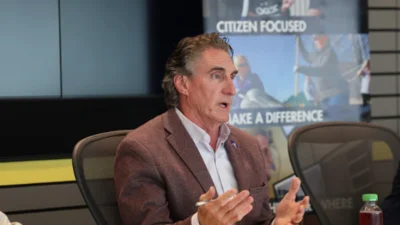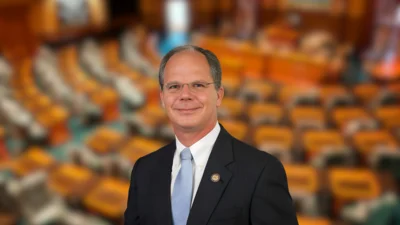The Government of Romania successfully completed a three-year, EU-funded human trafficking awareness campaign, and drafted an improved version of the national victim identification and referral mechanism. The government did not significantly increase efforts to prosecute and punish trafficking crimes or identify and protect potential victims of trafficking.
NEAR EAST
Algeria
Since the release of the 2019 TIP Report, the Government of Algeria prosecuted some traffickers, increased awareness of trafficking crimes by launching an anti-trafficking website, and continued work on a stand-alone anti-trafficking law. The Algerian government did not finalize procedures for officials to screen vulnerable populations for trafficking indicators, however, including migrants who continually face risks of expulsion and deportation, nor did it finalize mechanisms for referring identified or potential victims to civil society for care; and, it also did not provide appropriate shelters or other protection services to assist trafficking victims.
Iraq
The Government of Iraq continued to implement measures to ensure there are no children within the Iraqi Armed Forces, while the Kurdistan Regional Government opened the Directorate of Combating Human Trafficking in June, licensed the first shelter for trafficking victims in November run by an NGO, and continued to assist IDPs and refugees - a population highly vulnerable to trafficking. Iraq has faced significant civil unrest since October, however, and the Iraqi central government has prioritized addressing governance challenges. Therefore, it is unclear if the government has made significant efforts to implement anti-trafficking measures or address the majority of the 2019 TIP Report recommendations.
SOUTH AND CENTRAL ASIA
Afghanistan
The Government of Afghanistan continued to report investigations and prosecutions of trafficking cases that did not involve child soldiers or government officials involved in bacha bazi. Government ministries continued to deny, however, any recruitment and use of children by Afghan security forces; the Ministry of Interior did not issue an internal directive to law enforcement to pursue cases of bacha bazi; and, the government did not investigate, prosecute, or convict any alleged government perpetrators of child soldier recruitment or bacha bazi, despite widespread reports.
Bangladesh
The Government of Bangladesh acceded to the Palermo Protocol; took some steps to consider MOUs to eliminate recruitment fees charged by licensed labor recruiters; gave executive direction to expand the 2013 Overseas Employment and Migrants Act to include regulation of overseas employment recruiting agents; and, more consistently solicited inputs from NGOs and civil society actors working to combat human trafficking. The government did not substantively address, however, the major delays in investigation and prosecution of trafficking cases, improve identification of trafficking victims within Bangladesh or abroad, adequately screen or provide services to Bangladeshi trafficking victims in the Gulf, and it continued to deny the existence of internal child sex trafficking.
Kazakhstan
The Government of Kazakhstan increased penalties for a variety of trafficking crimes, eliminated the possibility of reconciliation in lieu of prosecuting traffickers, clarified anti-trafficking guidelines for diplomatic personnel, and trained labor inspectors. The government did not provide, however, services or assistance to foreign victims who did not participate in a criminal case, nor did it increase funding and resources for anti-trafficking police units, renew labor inspections of small businesses, or provide legal alternatives to deportations of potential victims of trafficking.
Kyrgyzstan
The Government of the Kyrgyz Republic adopted the National Referral Mechanism (which provides government assistance to victims without the need to file a criminal case), identified the State Migration Service as the lead government body to coordinate national anti-trafficking efforts, and launched three trafficking investigations. It has not yet convicted, however, any alleged traffickers or government officials and has continued to require that victims who were compelled to commit crimes cooperate with law enforcement on prosecutions in exchange for immunity.
Maldives
The Government of Maldives convened its national steering committee on trafficking for the first time in two years and began a re-registration drive to return legal status to more than 60,000 estimated undocumented migrant workers in country, connecting them with state resources and identifying five potential trafficking cases. Lack of clarity within the government on responsibility for trafficking issues and poor coordination between immigration and law enforcement, including on the re-registration drive, however, resulted in haphazard screening for potential victims and minimal progress in prosecuting traffickers.
Sri Lanka
The Government of Sri Lanka reported significantly increased trafficking-related indictments, issued directives to expedite trafficking cases, enhanced monitoring of licensed recruitment agencies, and reported increased efforts to identify potential trafficking victims. The government did not report efforts, however, to investigate allegations of official complicity in trafficking, and victim identification, particularly of Sri Lankan trafficking victims abroad, and protection services remained problematic.
Uzbekistan
The Government of Uzbekistan continued to enhance its national coordination of anti-trafficking efforts, as President Mirziyoyev signed a decree to criminalize trafficking in persons, including forced labor, and it established a national commission and created the position of national rapporteur to address trafficking crimes. The number of investigations, prosecutions, and victim identifications continued to decline, however, and reports of forced labor during the annual cotton harvest persisted, although these reports have decreased from previous years.
WESTERN HEMISPHERE
Barbados
The Government of Barbados continued to fund victim assistance programs that could also aid victims of trafficking. The government did not publish a national action plan to combat trafficking in persons, nor did it prosecute or convict any traffickers, amend the anti-trafficking law, or increase law enforcement training to identify and assist victims.
Belize
The Government of Belize opened 10 new investigations, initiated eight prosecutions, identified five trafficking victims, provided support services to one victim and work permits to four victims, and per police policy it disciplined two police officers for attempting to work at a bar where commercial sex acts occur. The government did not investigate or prosecute any alleged child sex tourists, and it did not make any effort to identify forced labor through the national labor recruiter registry or its inspections.
Bolivia
The Government of Bolivia improved binational coordination of anti-trafficking efforts with Peru by approving the 2019-2020 Binational Roadmap for bilateral action related to the prevention of trafficking, protection of victims, and the prosecution of cases. With the November 10-12 unexpected change in government, it is unclear what progress the transitional government will be able to make on the other recommendations from the 2019 TIP report.
Curacao
The Government of Curacao approved a new policy directive to aid public prosecutors on the criminalization of trafficking crimes, and it conducted one trafficking investigation and convicted four individuals for trafficking or trafficking-related crimes, including one in absentia. The government did not make sufficient concrete efforts to improve victim identification among Venezuelan migrants, and protection mechanisms remain weak.
Nicaragua
The Government of Nicaragua investigated six cases and prosecuted two cases. The government did not report results to implement its national anti-trafficking strategy, nor did it amend its anti-trafficking law consistent with international law or invite a representative of civil society to participate in its national coalition.
Source: U.S Department of State, Bureau of Oceans and International Environmental and Scientific Affairs








